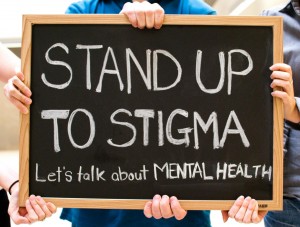The impact of mental illness is wide reaching and can affect people on many levels including education, employment, physical health and relationships. Although many mental health interventions are available, people do not seek out care because of the stigma surrounding mental illness. Below are a few mental health myths and facts to help break down the stereotypes and stigmas.
Myth: Mental health problems don’t affect me.
Fact: Mental health problems are actually very common.
- One in five American adults experienced a mental health issue
- One in ten young people experienced a period of major depression
- One in twenty-five Americans lived with a serious mental illness, such as schizophrenia, bipolar disorder, or major depression
Myth: There is no hope for people with mental health problems. Once a friend or family member develops mental health problems, he or she will never recover.
Fact: Studies show that people with mental health problems get better and many recover completely. Recovery refers to the process in which people are able to live, work, learn, and participate fully in their communities. There are more treatments, services, and community support systems than ever before, and they work.
Myth: I can’t do anything for a person with a mental health problem.
Fact: Friends and loved ones can make a big difference. Only 44% of adults with diagnosable mental health problems and less than 20% of children and adolescents receive needed treatment. Friends and family can be important influences to help someone get the treatment and services they need by:
- Reaching out and letting them know you are available to help
- Helping them access mental health services
- Learning and sharing the facts about mental health
- Treating them with respect
To learn more about metal health visit mentalhealth.gov
